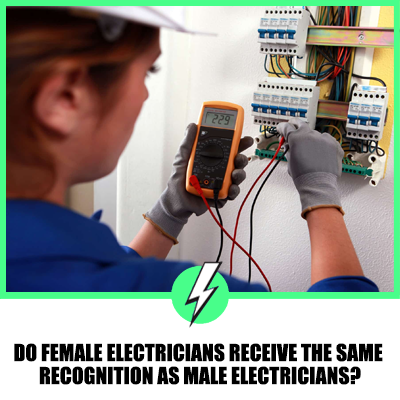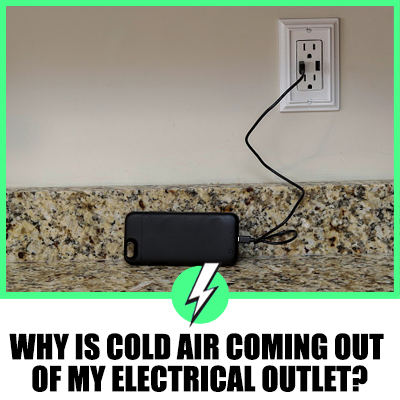Do You Need Physics To Be An Electrician?
Are you interested in becoming an electrician but failed Physics at school? Will this prevent you from proceeding to train for your dream job?
Physics is one of those subjects that can be difficult to grasp at school. How do you relate the science of mass and energy to anything meaningful? You do need to understand the basics of physics to become an electrician. Still, you can learn this through your training period and pass the course easily with application and motivation.

Contents
What subjects do I need to become an electrician?
To sail into an apprenticeship, you should have a well-rounded education and be above average in most subjects.
However, the real world is different, and you can’t be good at everything you do, so let’s look at what you will need to join an electrical apprenticeship.
- Maths, you don’t need to be a rocket scientist, just have a good grasp of maths like knowing how to calculate angles, it’s all basics you should leave school with.
- Physics, but only the basics like ohm’s law, which is easy
- English, you need to be able to communicate and comprehend instructions.
- Information technology.
- Electrical technology.
Most companies look for the first 3 subjects and then two others, so you will leave school with a minimum of 5 GCSEs with grades not lower than a “C”.
What physic will you be using?
Let’s assume you are looking to be an electrician who works in domestic properties—known as a domestic installer.
You will need to know ohm’s law and how it is used. Here is ohm’s law:
Formula:
V = voltage I=V/1 or V=IR or R= V/!
I = current or
R= resistance Ω
By using any two of the ohm’s law letters, you can find the value of the other. We all know physics can be more complicated than this simple equation, and some electricians, like industrial electricians, use more complex equations.
But, physics has been taught to them in a very specific topic related to work, so it is more understandable to the electrician when he knows why he needs that information.
Do you need to be good at maths to become an electrician?

You need an understanding, and being able to do arithmetic in your head will help. You have to consider the work electricians tackle in a domestic setting.
The biggest job is to rewire a house and fit a new consumer unit. This will require you to measure up and come up with a fairly accurate assessment of what type of cable is needed and how much cable is needed.
It’s all basic, and to be honest, if your maths is challenged, you can use a calculator and all the other tools that are available online to come up with the right answer.
If you have something complex and you feel out of your depth, you can guarantee there is an electrical wholesaler who is prepared to help in return for your business.
Is the electrician course hard?
It’s not as difficult as you have built up in your mind. Like most things in life, you can do pretty much whatever you set your mind to with motivation and application.
The transition from school to being an apprentice may be more challenging than you think. Effectively you are leaving school and entering full-time work.
The life of an electrician apprentice will see you working 9 am to 5 pm and attending day release at college 1 day every week during the academic year.
How does an electrician apprentice gain his skills?
You will work alongside qualified electricians who will supervise your work. You will start with basic skills like learning how to use a screwdriver and then progress on to the tools of the trade like multimeters and test equipment.
How long is an electrician apprenticeship?
You can consider that the course will take you 4 years to complete the course faster, but it’s not a race and what is important is you finish the course with all of the skills you will need for the rest of your life as a working electrician.
At the end of the course, you will have gained an NVQ Level 3 diploma once successfully passed.
Your NVQ 3 will give you:
- Obtain the Electrician status with a JIB card if you wish to join the group as an electrical contractor.
- You will be able to become a Part P registered Approved electrician with one of the Part P schemes such as NICEIC, Elecsa or NAPIT.
What can a qualified electrician be expected to work on?
An electrician’s work can be varied depending on which area you want to specialise in.
Here are a few types of day to day jobs electricians work on:
- Installing and maintaining electrical circuits in homes, commercial establishments or factories. This will be the bread and butter work of an electrician.
- Panel building and installing control panels used to control infrastructure and large machinery, including air conditioning units in shopping centres and leisure facilities.
- Repairing electrical motors by rewinding.
- Testing and calibrating control equipment found in manufacturing and building maintenance services.
- Servicing electromechanical equipment such as heavy plant.
- Installing and maintaining street lights, installing traffic management signals and repairing faults.
- Repairing transformers.
- Repairing overhead power lines that transport electricity across counties and the country.
Domestic electricians have a different work environment than those described above but are rewarding.
A typical working day for a domestic electrician can be:
- Fixing wiring systems in wall cavities, ceilings, floors and metal structures.
- Fitting consumer units.
- Connecting wiring to sockets and light fittings and appliances around the home.
- Installing cables for computer networks and installing CCTV along the way.
- Inspecting wiring and issuing certificates for safety reasons.
Electrician vs Physics
An electrician’s life is not all about calculating complex equations in your head. It’s more like basic adding subtraction and multiplication when it’s needed.
Physics can be taught, and Physics should not deter you from your dream job.





